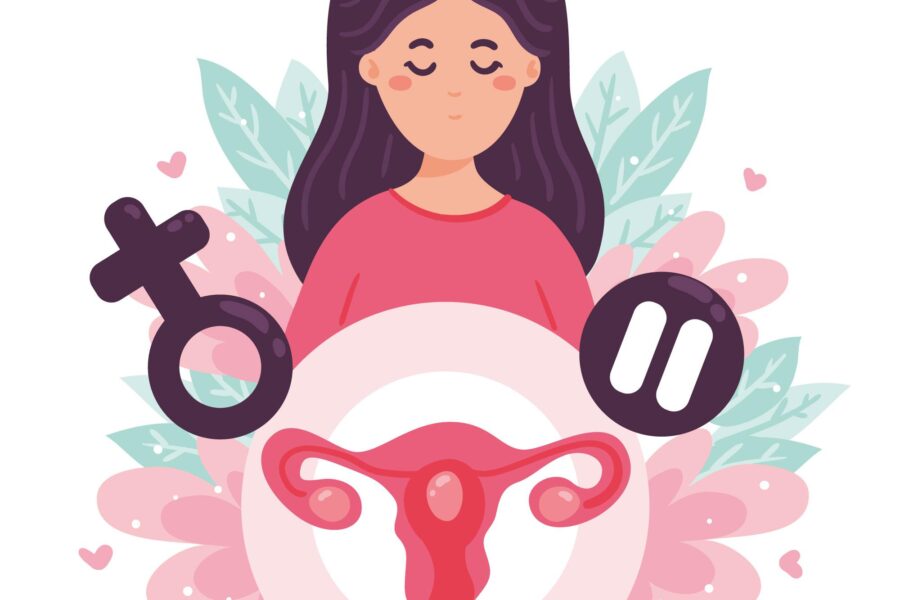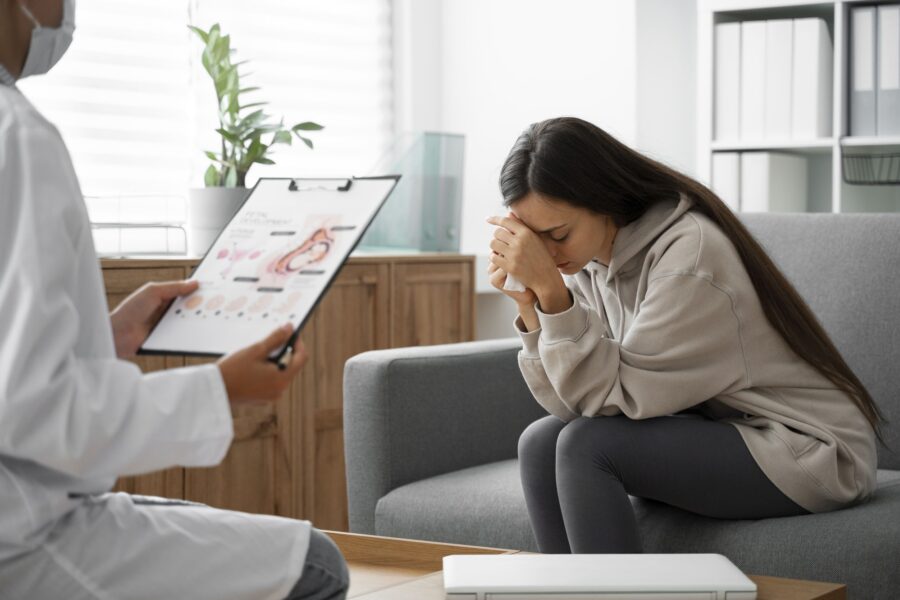Introduction
Polycystic Ovary Syndrome, or PCOS, is a common issue that can affect people with ovaries. It messes with hormones and can cause various problems. Let’s break down the basics of PCOS, understanding what it is, its signs, what causes it, and how it can be managed.
What is PCOS?
PCOS is like a hormonal hiccup that mainly happens in the ovaries of people in their baby-making years. There are three main things going on with PCOS:
- Messy Periods: People with PCOS often have periods that are all over the place—sometimes they’re rare, sometimes they’re a no-show.
- Too Much Guy Hormone: PCOS can make the body produce too much of the hormones that guys usually have. This can lead to things like extra hair in places it’s not wanted and pesky pimples.
- Cyst-y Ovaries: The ovaries might get a bit lumpy with small, liquid-filled sacs, sort of like tiny balloons.
Signs of PCOS
PCOS can show itself in different ways, but common signs include:
- Weird periods
- Extra hair in strange places
- Pimples and oily skin
- Gaining weight or struggling to lose it
- Thinning hair or hair loss
- Darkening of the skin, especially in skin folds
- Feeling moody or sad
- Having trouble getting pregnant
Why PCOS Happens
No one is exactly sure why PCOS happens, but it’s like a mix of family traits and the environment. There’s also a connection with the body not handling insulin (a sugar-control hormone) very well.
Getting Checked for PCOS
Doctors use a mix of chatting about symptoms, doing some checks, and maybe some pictures of the insides (ultrasound) to figure out if PCOS is causing trouble.
Managing PCOS
PCOS isn’t something that can be kicked out completely, but there are ways to make friends with it:
- Move Around: Regular exercise is like a superhero against PCOS.
- Eat Good Stuff: A balanced diet is like a magic spell for taming hormones.
- Keep an Eye on Weight: Managing weight can help calm things down.
- Medicine Help: Sometimes, doctors might give special pills to help with specific issues.
If having a baby is tricky because of PCOS, there are special tricks (fertility treatments) to help. And it’s totally okay to talk to someone if PCOS is making life feel a bit gloomy.
Conclusion
Understanding the basics of PCOS is like having a map for a journey. Knowing the signs, what might be causing it, and how to manage it can help make life with PCOS a bit smoother. Talking to a doctor and making some small changes can make a big difference in feeling good and taking charge of PCOS.





